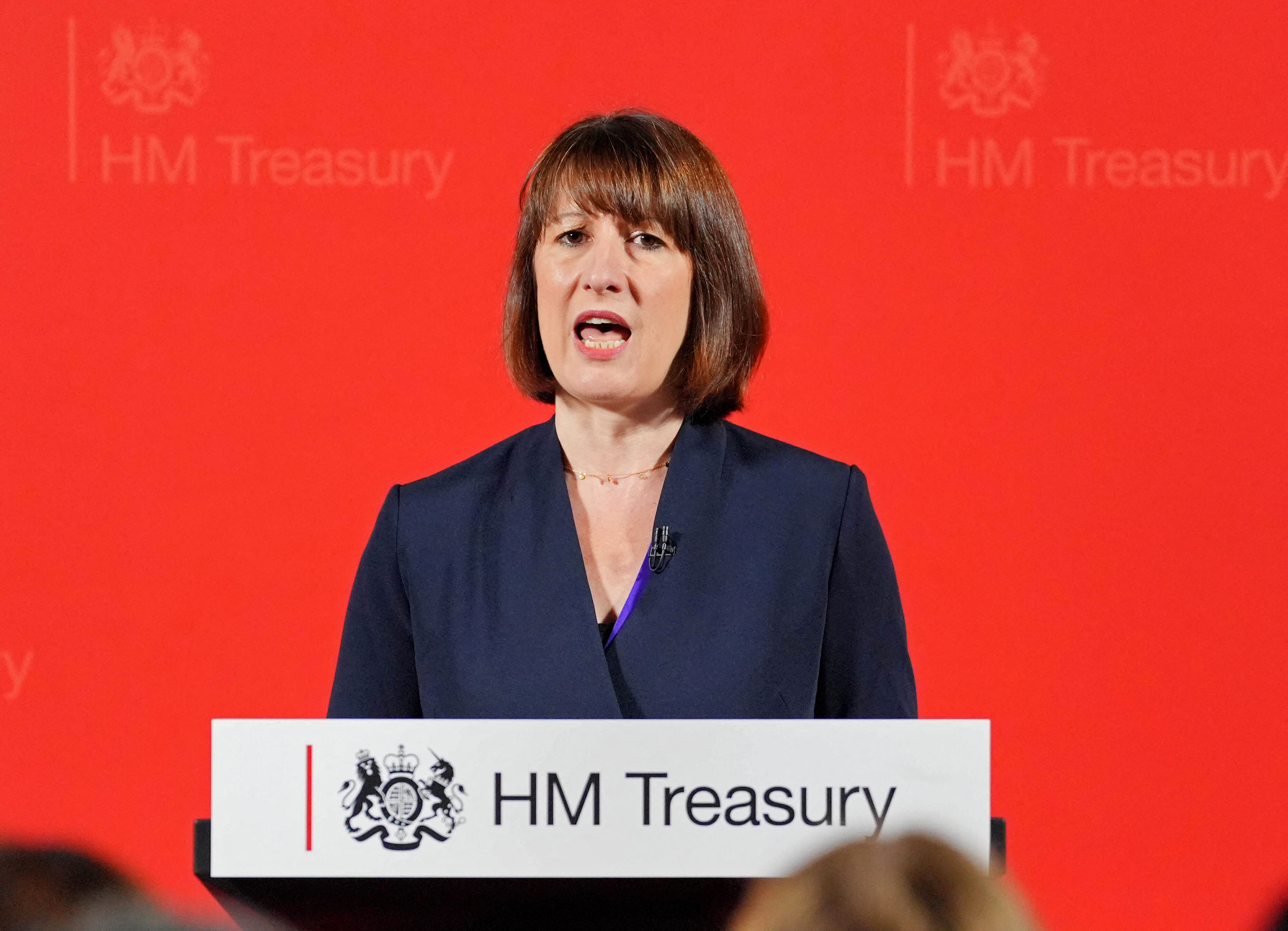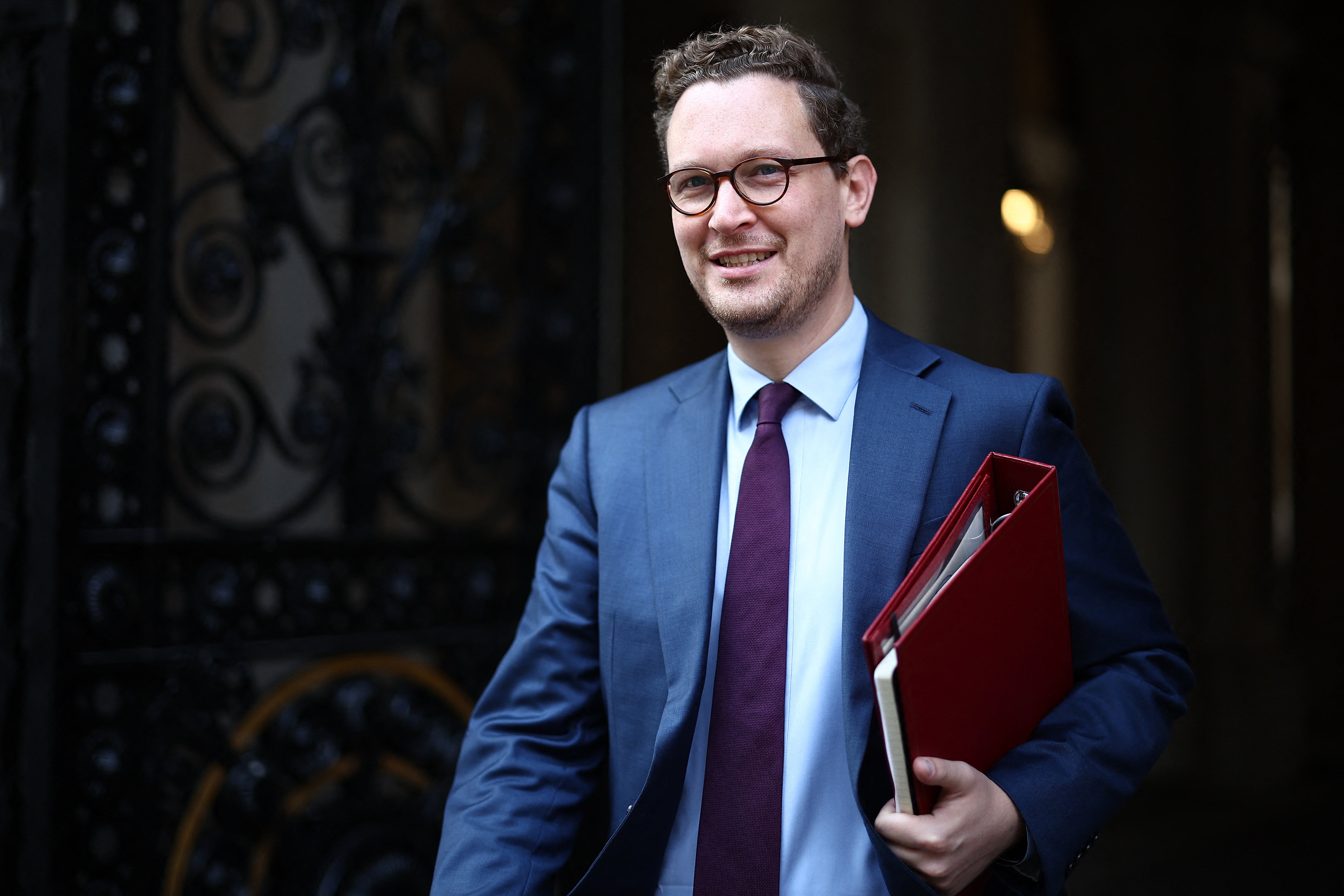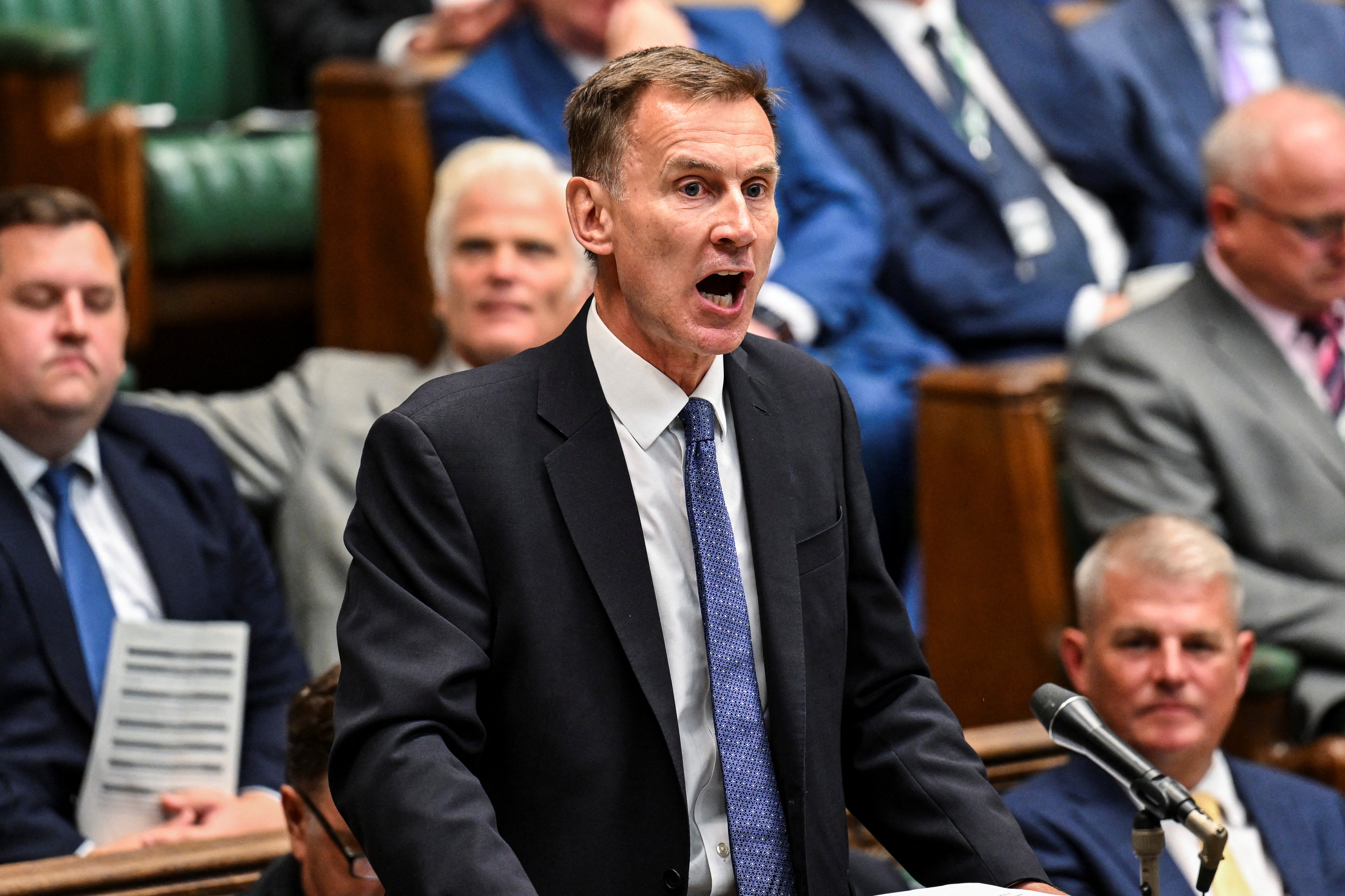Government borrowing surges to higher than expected £3.1bn as Reeves under pressure to raise taxes
The Office for National Statistics (ONS) said public sector net borrowing stood at £3.1bn last month, £1.8bn more than a year ago and the highest July borrowing since 2021
Your support helps us to tell the story
From reproductive rights to climate change to Big Tech, The Independent is on the ground when the story is developing. Whether it's investigating the financials of Elon Musk's pro-Trump PAC or producing our latest documentary, 'The A Word', which shines a light on the American women fighting for reproductive rights, we know how important it is to parse out the facts from the messaging.
At such a critical moment in US history, we need reporters on the ground. Your donation allows us to keep sending journalists to speak to both sides of the story.
The Independent is trusted by Americans across the entire political spectrum. And unlike many other quality news outlets, we choose not to lock Americans out of our reporting and analysis with paywalls. We believe quality journalism should be available to everyone, paid for by those who can afford it.
Your support makes all the difference.Government borrowing surged by more than expected in July in a blow to Rachel Reeves as she prepares to deliver her first Budget.
The Office for National Statistics (ONS) said public sector net borrowing stood at £3.1bn last month, £1.8bn more than a year ago and the highest July borrowing since 2021.
The total for July was £3bn more than predicted by Britain’s official forecaster, the Office for Budget Responsibility (OBR), and higher than the £1.1bn most economists were pencilling in.

Borrowing in the financial year from the end of March to July was £51.4bn, £500m less than in the same four-month period a year earlier, but the fourth highest year-to-July borrowing since monthly records began in January 1993, the ONS said.
It comes after the new chancellor last month accused the previous Conservative government of leaving a £21.9bn black hole in the public finances, through unfunded commitments that she said it had “covered up”.
Chief secretary to the Treasury Darren Jones said: “Today’s figures are yet more proof of the dire inheritance left to us by the previous government.
“A £22bn black hole in the public finances this year, a decade of economic stagnation and public debt at its highest level since the 1960s, with taxpayers’ money being wasted on debt interest payments rather than on our public services.”

And Jessica Barnaby, deputy director for public sector finances at the ONS, said: “July borrowing was almost £2bn higher this year than in 2023.
“Revenue was up on last year, with income tax receipts in particular growing strongly.
“However, this was more than offset by a rise in central government spending where, despite a reduction in debt interest, the cost of public services and benefits continued to increase."
The setback came as it emerged the chancellor is planning to use her 30 October budget to raise taxes and cut spending, while also clamping down on benefit claimants to reduce the welfare bill.
The chancellor has already announced plans to scrap winter fuel payments for most pensioners, shelved planned social care reforms and cut some road, rail and hospital investments to lower government borrowing.
But the Treasury is pointing to further measures in the October budget to balance the books.
A source told The Guardian: “We don’t accept the positive economic inheritance line, given the decade that went before – but regardless, nothing in the recent data can offset the scale of the black hole in the public finances we’re looking at.”

Weeks after taking over as chancellor, Ms Reeves accused the previous government of a “cover-up” of the state of the nation’s finances, and also took the axe to Rishi Sunak’s legacy, scrapping his Advanced British Standard qualification – saving £260m in the process – and his plans to reopen railways, to be paid for out of High Speed 2 savings.
In a bid to plug the £22bn hole she identified in the public finances, Ms Reeves warned there would be further “difficult decisions” in her first budget on top of the cuts this year and next.
The influential Institute for Fiscal Studies (IFS) said Wednesday’s borrowing figures showed the government was facing pressures “well and above what was budgeted for”.
IFS senior research economist Isabel Stockton said: “The early signs are that better-than-expected growth figures won’t be enough to save Rachel Reeves from tough choices in her first Budget on 30 October. The combination of in-year spending pressures identified at last month’s spending audit and the ongoing, and well-known, pressures facing many public services suggest that the accompanying spending review for 2025-26 could be a particularly difficult exercise.”
But the Institute of Chartered Accountants in England and Wales (ICAEW) warned against deep public spending cuts in October. Director of taxation Alison Ring said: “Rumours that the government is looking at significant cuts in public investment programmes this year to keep within budget are concerning, given the importance to economic growth of infrastructure and the urgent need for upfront investment in technology to fix poorly performing public services.”

Join our commenting forum
Join thought-provoking conversations, follow other Independent readers and see their replies
Comments